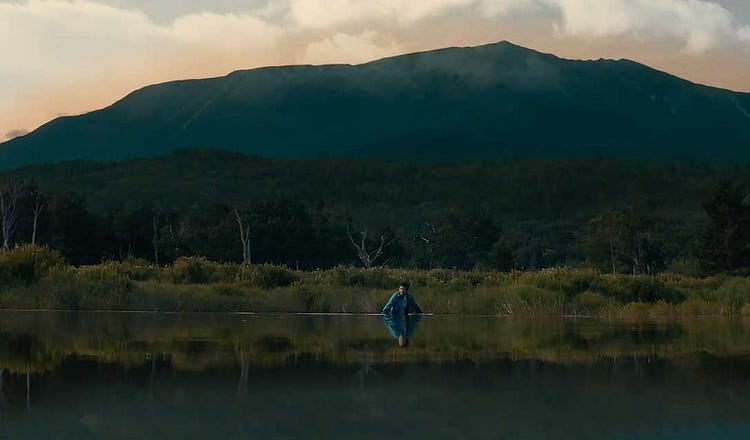
You beamed. You cried. You commented in the hundreds. Free Press readers responded overwhelmingly to Elias Wachtel’s piece, “On the Appalachian Trail, I Fell in Love with America.” It ran on July 19, exactly three years after 22-year-old Elias—who is part of our first generation of Free Press Fellows—completed the 2,193-mile hike from Georgia to the highest peak of Maine, Mount Katahdin.
“It’s true that no one can get you up the mountain but yourself,” he wrote. “But as I reached Katahdin’s summit, I thought about my family, and my friends on trail. . . and the generations of Americans who cut the trails we walk.”
One of those Americans is Donn Fendler. Eight decades before Elias summited Katahdin, Donn got lost in a storm on the very same mountain, at the age of 12. A monumental search effort immediately began. It was July 1939: Europe was on the brink of war, but all America could think about was this boy who, as the days ticked by, seemed unlikely to return to his family.
But return he did. Donn had walked a hundred miles, in cut-up sneakers and with little in his belly except berries. That same year, with the help of journalist Joseph Egan, he told the story of what happened in a book, Lost on a Mountain in Maine—which has been adapted into a film of the same name, out this month.
What’s most remarkable about Donn is his conviction that he’d survive. Although the odds were stacked against him, he was so sure he’d get home that he carried a heavy rock as a souvenir because, he recalled, “I knew Mommy would like it.”
Here, Elias tells the incredible story of Donn Fendler. —The Editors
In the summer of 1939, as clouds of war darkened over Europe, a boy named Donn Fendler was lost on a mountain in Maine. The 12-year-old had run ahead of his father and brothers to reach the peak of Mount Katahdin, the highest in the state, when a fierce storm blew in. In pelting rain and dense fog, Donn stumbled off the trail, unable to find his way back to his family. By the time they realized he was missing, his loved ones couldn’t shout his name loudly enough to be heard over the wind.
The race was on to find Donn before he succumbed to one of Katahdin’s many perils. A young friend of his family, who’d been hiking with them, hurried down the mountain and mobilized a small group of forest rangers who searched through the night. By the next morning, Maine State Police had joined in. Volunteers from local towns flocked to the mountain to help, and the Great Northern Paper Company sent men from its timber crews. Police brought bloodhounds to follow Donn’s trail, but their paws were cut up so badly by the rough terrain they had to be carried down the mountain. More dogs were flown in by New York State Police. Meanwhile, the governor of Maine ordered 65 National Guardsmen to Katahdin.
All the while, America held its breath. Donn’s story made headlines across the nation, and his mother, Ruth Fendler, began receiving telegrams—hundreds of them—from other moms across the country, telling her they were praying for her and her son. But as the days dragged by, hope began to flag. After a week, most searchers assumed they were looking for a body rather than a boy.
Then, miraculously, the nation’s prayers were answered. Nine days after Donn had last been seen, the owner of a small cabin on the Penobscot River—35 miles east of Katahdin—contacted the authorities to tell them about the boy who’d wandered onto his property. Donn was exhausted, bloodied, half-naked, and skeletally thin; he’d been subsisting on berries and stream water, and had lost 16 pounds. It’s thought that he walked at least 100 miles, using what he remembered from the Boy Scouts to follow a small stream and, eventually, a telephone wire back to civilization. Meanwhile, the search parties had never even left Katahdin, thinking it impossible that a boy his age could have made it down the mountain alive.
That boy became a national hero.


